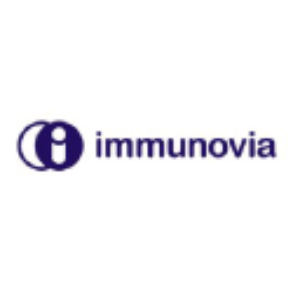Immunovia reiterates its road to reimbursement for the IMMray™ PanCan-d test
Immunovia is set to launch the IMMray™ PanCan-d test in the US as a Laboratory Developed Test (LDT) in Q2 2021. The company is pursuing a positive Medicare coverage determination via the Local Coverage Determination (LCD) process, aiming for coverage that aligns with existing surveillance imaging modalities for high-risk pancreatic cancer patients. Immunovia anticipates securing agreements with a majority of U.S. payers by year-end 2022, supported by ongoing clinical studies, including PanFAM-1. This innovative test targets early diagnosis of pancreatic ductal adenocarcinoma.
- Launch of the IMMray™ PanCan-d test as a Laboratory Developed Test (LDT).
- Potential for positive Medicare coverage determination through the Local Coverage Determination process.
- Plans to establish reimbursement agreements with a majority of U.S. payers by end of 2022.
- The IMMray™ PanCan-d test aims to improve early detection and patient outcomes for pancreatic cancer.
- None.
Insights
Analyzing...
LUND, Sweden, April 22, 2021 /PRNewswire/ -- Immunovia is launching its IMMray™ PanCan-d test in the US as a Laboratory Developed Test (LDT) in Q2 2021. The company will explore a positive Medicare coverage determination for the IMMray™ PanCan-d test through the Local Coverage Determination (LCD) process.
The IMMray™ PanCan-d test will be performed at Immunovia Dx Laboratories in Marlborough, Massachusetts, and will be available to all patients in the US. In accordance with Medicare regulations, all Medicare billing will be conducted by Immunovia Dx Laboratories through the Medicare Administrative Contractor (MAC) that administers benefits in Massachusetts (National Government Services or NGS). Therefore, obtaining coverage from NGS would be sufficient for coverage of all Medicare-participating patients nationwide.
Patrik Dahlen, CEO Immunovia, stated "We believe that the IMMray™ PanCan-d test, intended as an aid in diagnosis in patients at high risk for developing pancreatic ductal adenocarcinoma (PDAC), meets the reasonable and necessary criteria for Medicare coverage."
Based on numerous interviews and working closely with experts on the subject, Immunovia concludes that if the IMMray™ PanCan-d test is used analogously to already-covered surveillance imaging modalities, and for the same high-risk population, then it is reasonable that both commercial payers and Medicare will view this use of the test as a "diagnostic" test rather than a "screening" test. Publications from the International Cancer of the Pancreas Screening (CAPS) Consortium, NCCN, ASCO and US Preventive Services Task Force (USPSTF) all recommend enrolling high-risk populations for pancreatic cancer into surveillance programs. More specifically, the high-risk population identified in the CAPS guidelines as eligible for pancreatic cancer surveillance overlaps almost completely with the population included in the groundbreaking PanFAM-1 clinical utility study of the IMMray™ PanCan-d test.
Diagnostics reimbursement expert Dr. David Parker, a Senior Vice President at Precision for Medicine, stated "Market research indicates that surveillance imaging of patients at high risk for pancreatic cancer is already routinely covered by payers, and is not considered as a screening application of the imaging modalities. Immunovia will be seeking coverage for the same surveillance use, in the same population. It seems highly unlikely that payers will view the IMMray™ PanCan-d test as a screening test, when they cover the clinical alternatives as diagnostic."
Immunovia will continue to execute focused US studies – including PanFAM-1 – to build the necessary evidence and dossiers, and to thereby establish clinical utility. The company's aim is to obtain coverage and reimbursement agreements with a majority of U.S. payers prior to year-end 2022.
For more information, please contact:
Patrik Dahlen, CEO Immunovia
Email: patrik.dahlen@immunovia.com
Tel: +46 73 376 76 64
About Immunovia
Immunovia AB is a diagnostic company that is developing and commercializing highly accurate blood tests for the early detection of cancer and autoimmune diseases based on Immunovia's proprietary test platform called IMMray™. Tests are based on antibody biomarker microarray analysis using advanced machine-learning and bioinformatics to single-out a set of relevant biomarkers that indicate a certain disease. Thus, forming a unique "disease biomarker signature".
The company was founded in 2007, based on cancer studies and ground-breaking research in the Department of Immuntechnology at Lund University and CREATE Health Cancer Center, Sweden.
The first product, the IMMray™ PanCan-d test, is undergoing clinical evaluation in some of the world's largest clinical studies for pancreatic cancer, PanFAM-1, PanSYM-1 and PanDIA-1 and is currently in the final validation phase. The final validation study was completed in Q1 2021. Commercial testing will begin in Q2 after the accreditation of Immunovia Dx Laboratory in Marlborough, Massachusetts, USA.
The IMMray™ PanCan-d test will be the first blood-based test for early diagnosis of pancreatic cancer on the market, with a potential to significantly improve patient survival and outcome.
Immunovia Dx Laboratories located in Marlborough, Massachusetts, USA and Lund, Sweden will provide laboratory testing services in two accredited reference laboratories.
Immunovia's shares (IMMNOV) are listed on Nasdaq Stockholm. For more information, please visit www.immunovia.com.
###
CONTACT:
This information was brought to you by Cision http://news.cision.com
The following files are available for download:
Press release (PDF) |
![]() View original content:http://www.prnewswire.com/news-releases/immunovia-reiterates-its-road-to-reimbursement-for-the-immray-pancan-d-test-301274609.html
View original content:http://www.prnewswire.com/news-releases/immunovia-reiterates-its-road-to-reimbursement-for-the-immray-pancan-d-test-301274609.html
SOURCE Immunovia AB







